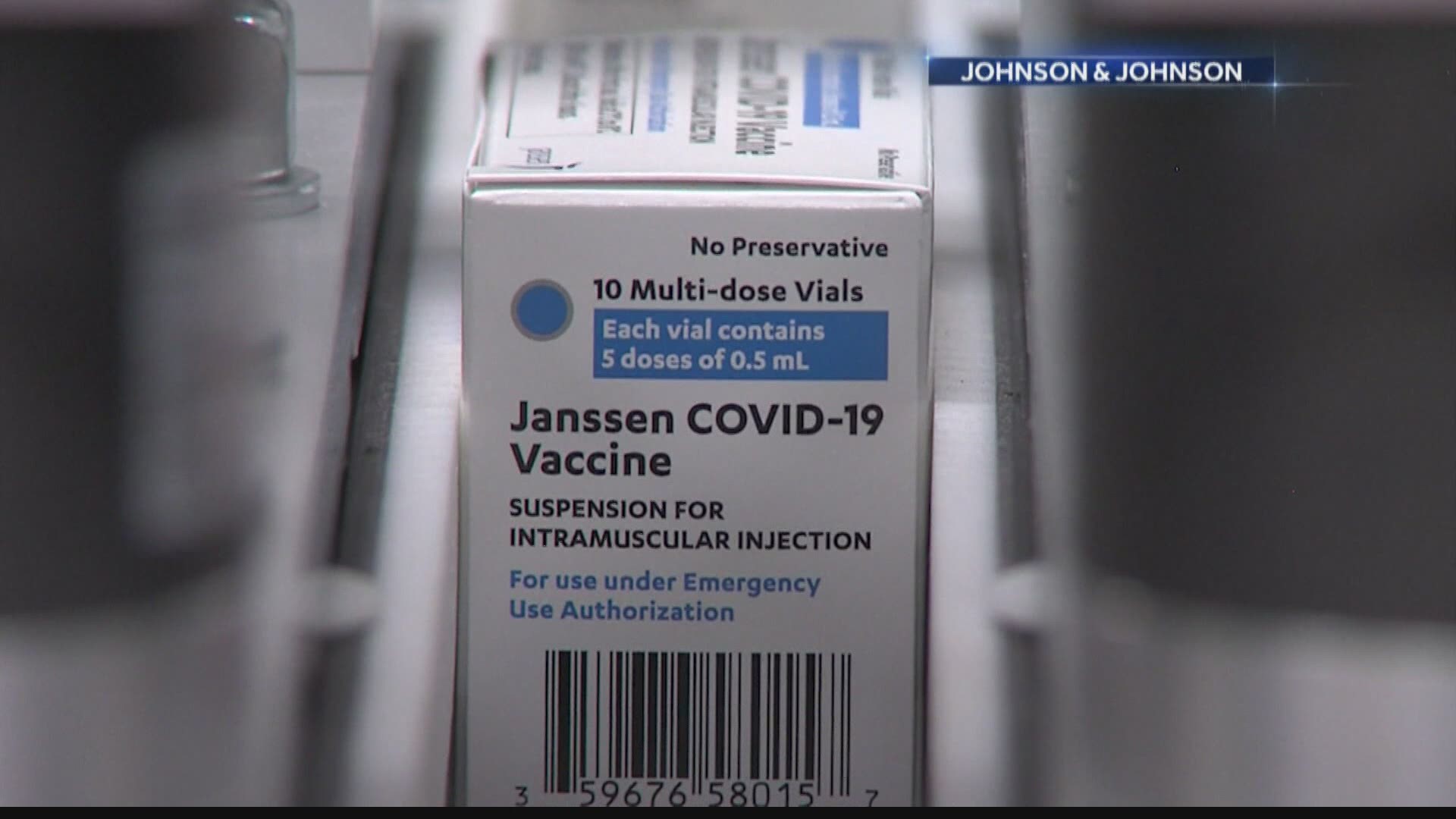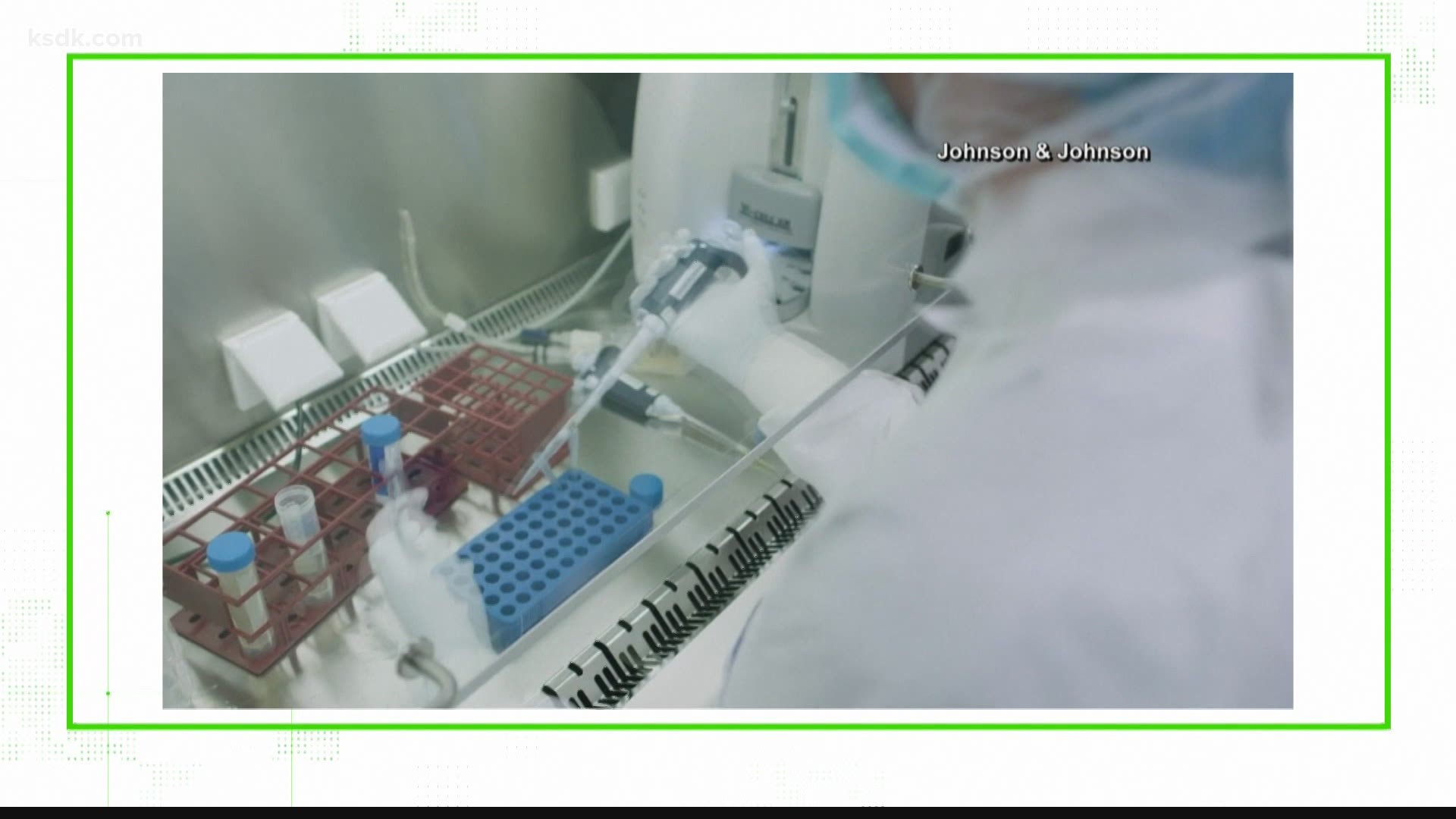INDIANAPOLIS — The Archdiocese of Indianapolis is weighing in on the debate over the use of fetal cell lines in developing coronavirus vaccines.
In a statement posted to its website this week, the archdiocese is urging people to take vaccines other than the one developed by Johnson & Johnson, if possible. The statement from the chairmen of the U.S. Conference of Catholic Bishops' committees on doctrine and pro-life activities addressed the "moral permissibility of using vaccines developed, tested, and/or produced with the help of abortion-derived cell lines."
Our national VERIFY team investigated the history of developing vaccines from fetal cell lines, including the vaccines used to combat COVID-19.
It starts with fetal cells that were taken from a pair of aborted fetuses obtained by a researcher from the Netherlands in 1973 and 1985, though the circumstances surrounding the abortions are not known.
Nearly 50 years later, the original cells have been reproduced in laboratories millions of times, creating what are called fetal cell lines. Even though they originated in an aborted fetus, experts say these are now independent cell lines, which can be replicated rapidly outside the human body and can be used by scientists to create viruses.
That's what Johnson & Johnson did to develop its vaccine, which works a little differently than the Pfizer and Moderna vaccines that are currently available. The Johnson & Johnson vaccine injects the adenovirus - a common cold virus - into your body.
The genetically engineered virus causes your body to make spike proteins. In response to those proteins, your body makes antibodies that can fight COVID-19.
The question many are now asking is does that shot of common cold virus that goes into your arm contain the fetal cell lines that were used to grow it? Experts say those cells and any remnants of cells are filtered out before the vaccine goes into the vial.
Despite that, several Catholic archdioceses across the country have come out with statements urging Catholics to not get the Johnson & Johnson vaccine if they have a choice.
RELATED: Read the statement from the USCCB
The statement from the USCCB chairmen, Bishop Kevin C. Rhoades of Fort Wayne-South Bend and Archbishop Joseph F. Naumann of Kansas City, Kansas, encourages Catholics, if given a choice, to select the Pfizer or Moderna vaccines. The bishops said the Johnson & Johnson vaccine raised "additional moral concerns" because of its development, testing and production.
But, the statement continued, if the Johnson & Johnson vaccine is the only option, the archdiocese said, "it is morally acceptable to receive COVID-19 vaccines that have used cell lines from aborted fetuses in their research and production process."
"While we should continue to insist that pharmaceutical companies stop using abortion-derived cell lines, given the world-wide suffering that this pandemic is causing, we affirm again that being vaccinated can be an act of charity that serves the common good,” the statement concluded.
A spokesperson for Johnson & Johnson said in a statement this week, that in developing their COVID-19 vaccine, they held to the highest bioethical standards and guidelines and that there is no fetal tissue in the vaccine.
For some more context, if you're concerned about how the Johnson & Johnson vaccine was made, experts say the fetal cell lines have also been used to make the hepatitis A vaccine, as well as vaccines for rubella, chicken pox and shingles.
Read the statement from Johnson & Johnson:
"We are proud to bring our COVID-19 vaccine to the world and to contribute to ending this pandemic. In developing our vaccine, we have held ourselves to the highest bioethical standards and guidelines. Our single-shot COVID-19 vaccine uses an inactivated non-infective adenovirus vector – similar to a cold virus – that codes for the coronavirus “spike” (S) protein, and there is no fetal tissue in the vaccine. We are able to manufacture hundreds of millions of doses using our engineered cell-line system and look forward to delivering those doses around the world and help meet the critical need."


